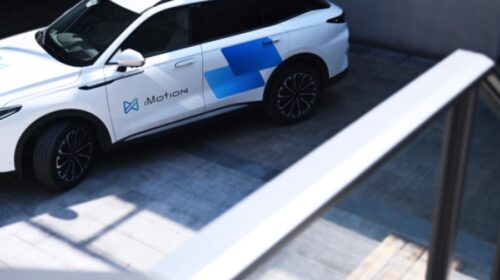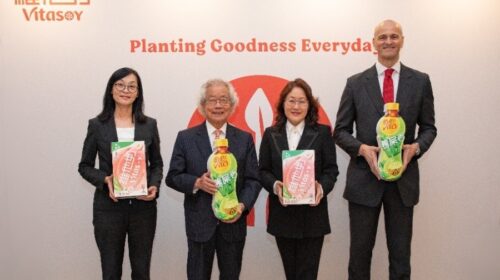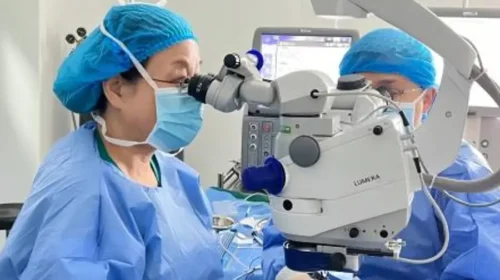Geely-backed iMotion eyes IPO fast lane for self-driving tech

The maker of smart driving systems, which earns most of its revenue from car giant Geely, has filed to list on the Hong Kong Stock Exchange
Key Takeaways:
- Revenues have surged at iMotion Automotive since it started producing control systems for autonomous driving in 2021
- But the company faces competition for investment cash as a host of other tech firms in the self-driving sector prepare to go public
By Emily Chan
Imagine a motor race with supercars lined up on the start grid, jostling for an early advantage. That’s how China’s self-driving car market looks, as automotive tech companies get ready to engage their IPO engines.
Can a new wave of self-driving car stocks inject new vigor into the auto sector, after shares in new-energy vehicles have been stuck in the slow lane?
Hesai Group (HSAI.US), a manufacturer of laser sensors for self-driving cars, raised $190 million in a Nasdaq listing in February, making it the biggest Chinese stock to go public in the U.S. after DiDi Global (DIDIY.US).
Now it’s the turn of iMotion Automotive Technology (Suzhou) Co. Ltd., a leading Chinese maker of domain controllers, the “brains” that process critical data for tech-assisted driving. The company filed in early April to list in Hong Kong, with plans to raise up to $300 million, according to market sources.
iMotion develops software and algorithms for autonomous driving, with a focus on the core processing technology that interprets sensor data to control the car. According to the preliminary prospectus, the company ranked as China’s second-largest third-party provider of domain controllers for autonomous driving by 2022 sales, with a 26.2% market share.
Revenue soars
The company’s revenue has accelerated rapidly, rising over 27-fold from 47.66 million yuan ($6.93 million) in 2020 to 1.33 billion yuan in just two years. Despite the impressive turnover, the company has still failed to make a profit, posting a total net loss of more than 840 million yuan in the past three years.
Excluding non-operating items, iMotion’s adjusted losses have shrunk somewhat, going from 35.67 million yuan in 2020 to 34.13 million yuan a year later and 16.87 million yuan in the latest annual earnings. However, the prospectus warns of significant expenses and sustained losses in the foreseeable future.
The iMotion business comprises two product lines: automotive domain driving controllers and intelligent front cameras (iFCs).
The controllers are a key component of smart and autonomous driving systems. They integrate and process data from cameras, radar and laser sensors to make driving decisions and engage the vehicle’s mechanics. The company’s first autonomous driving solution, launched on the market in 2020, generated 1.25 billion yuan in segment revenue last year, accounting for 94.5% of total top-line income.
Its other main business segment supplies algorithm-based iFC solutions to original equipment manufacturers (OEMs) in the car industry, allowing cameras to collect and analyze data such as road conditions and the movements of other vehicles on the road.
Most of the company’s revenue comes from sales of its autonomous driving solutions and products to car companies and parts suppliers, including automotive giants Geely Automobile (0175.HK), Great Wall Motor (2333.HK; 601633.SH) and DongFeng Automobile (600006.SH). It has delivered more than 100,000 automotive driving domain controllers in total. As the largest customer, Geely contributed revenue of 95 million yuan in 2021 and 1.28 billion yuan last year, equivalent to 53% and around 96% of total revenue. The risks of heavy reliance on a single customer have caused concern among investors.
iMotion and Geely have been working together since October 2020 on driving solutions, with products entering mass production the following year. Since then, iMotion has become one of Geely’s main suppliers, in particular for the Zeekr electric vehicle brand. Last year iMotion was mainly serving the Zeekr 001 model, but this year the company was also selected as a supplier for the Zeekr 009, a luxury electric minivan. That cooperation, starting from January, is expected to boost revenue for the whole year.
Gross margin in reverse gear
Last year, Geely’s sales of new energy vehicles reached 329,000 units, a rise of more than 300% from a year earlier. Revenue at iMotion rose in tandem, but the company still could not break even. The problem lies in a gross margin that fell to just 8.3% last year from around 20% in the previous two years. The company cited the low margin on the high-end autonomous driving solution, SuperVision, that went into mass production in October 2021, as the main reason.
In the gross margin stakes, iMotion lags far behind Hesai, which went public in February. Hesai’s gross margin has also been falling, but it still stood at 44% in the first three quarters of last year compared with 70.3% in 2019.
The company provides two types of driving domain controllers. The SuperVision technology for assisted driving was developed with Mobileye (MBLY.US), a spin-off from Intel (INTC.US). The other controller is the independently designed iDC series, made up of two product lines, the iDC Mid and iDC High.
Mobileye has been in partnership with Geely since 2018 and supplies technology for the SuperVision system. SuperVision products bought by Geely from Mobileye surged more than 10-fold to 922 million yuan last year from 78.4 million yuan in 2021, around 69% of total purchases. Thus, those input costs grew at a much faster pace than revenue in the period, dragging down iMotion’s overall gross profit level.
The key problem for iMotion is the close cooperation between customers and suppliers, which reduces its bargaining power. Any collaboration issues with Geely could trigger a revenue crisis. The company has begun to expand and diversify its customer base by partnering with other players in the automotive industry, but the over-reliance on Geely remains an acute business risk.
The company raised about 920 million yuan in nine financing rounds before filing for an IPO. A subsidiary of Li Auto (2015.HK; LI.US), one of the giants of the new energy vehicle industry, took a 7% stake in the 2017 Pre-A financing and followed up in the B-1 round. But the Li Auto subsidiary, Beijing CHJ Automotive, did not inject further capital in the next six rounds, and its stake has now diluted to 4.5%. Other investors include Future Capital, Iflytek AI Venture Capital Fund, Shenzhen China Merchants Startup Capital Partnership and China State-owned Enterprise Mixed Ownership Reform Fund.
The company’s financing cost rose from 0.7 yuan per share in the Pre-A round to 16.2 yuan in late 2022, while its valuation has ballooned from 85 million yuan to 3.3 billion yuan. Based on the latest valuation, iMotion’s price-to-sales (P/S) ratio is about 2.5 times, far lower than Hesai’s 8.69 times.
And the capital-raising race is about to get crowded. Peers such as Saimo Technology, WeRide Technology and Plus.ai are all planning to go public, giving investors plenty of choice in the self-driving stakes and potentially diverting market attention away from iMotion.
To subscribe to Bamboo Works weekly free newsletter, click here






